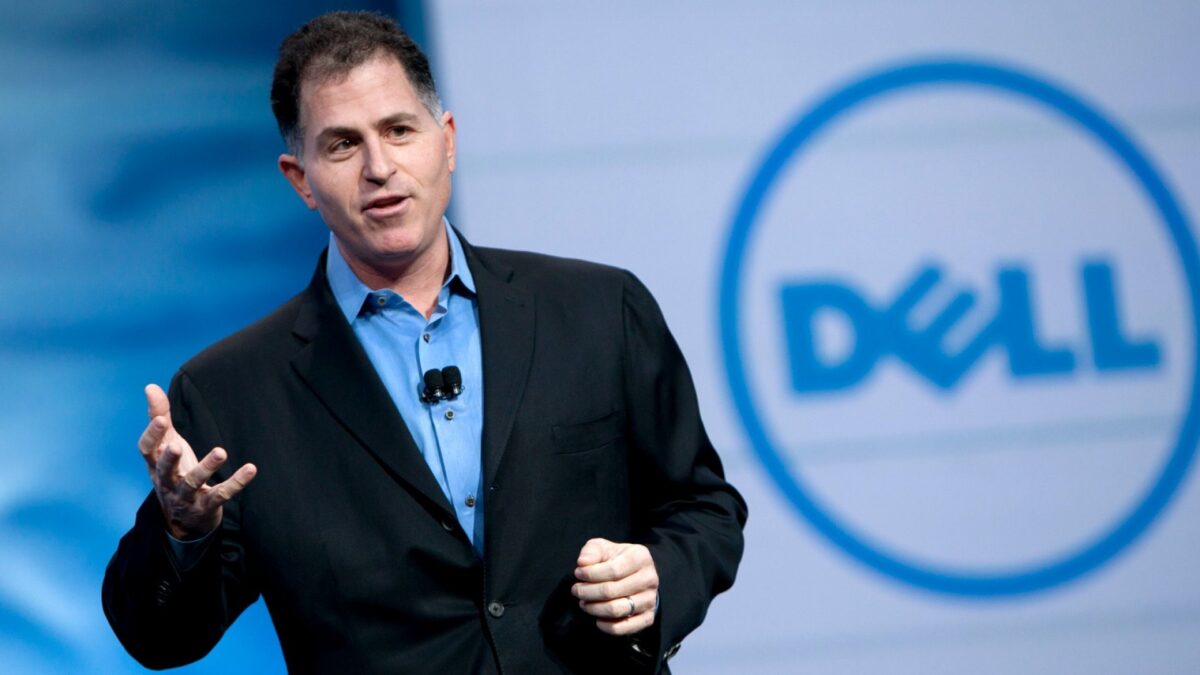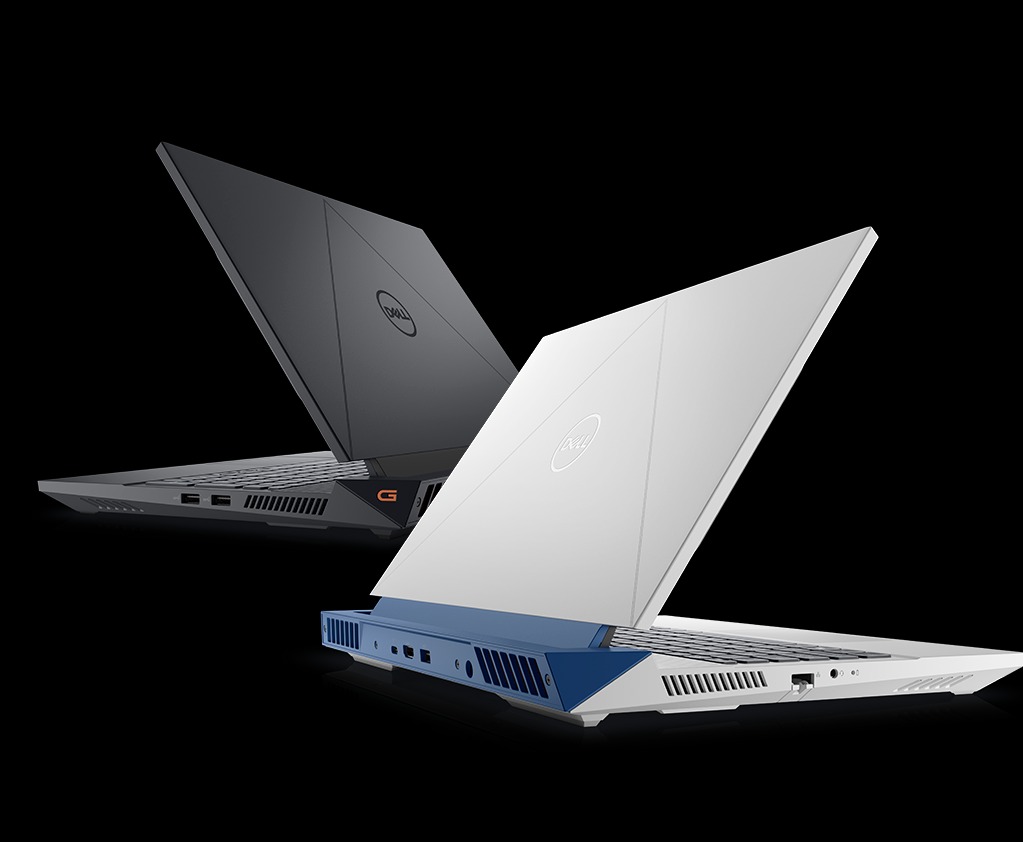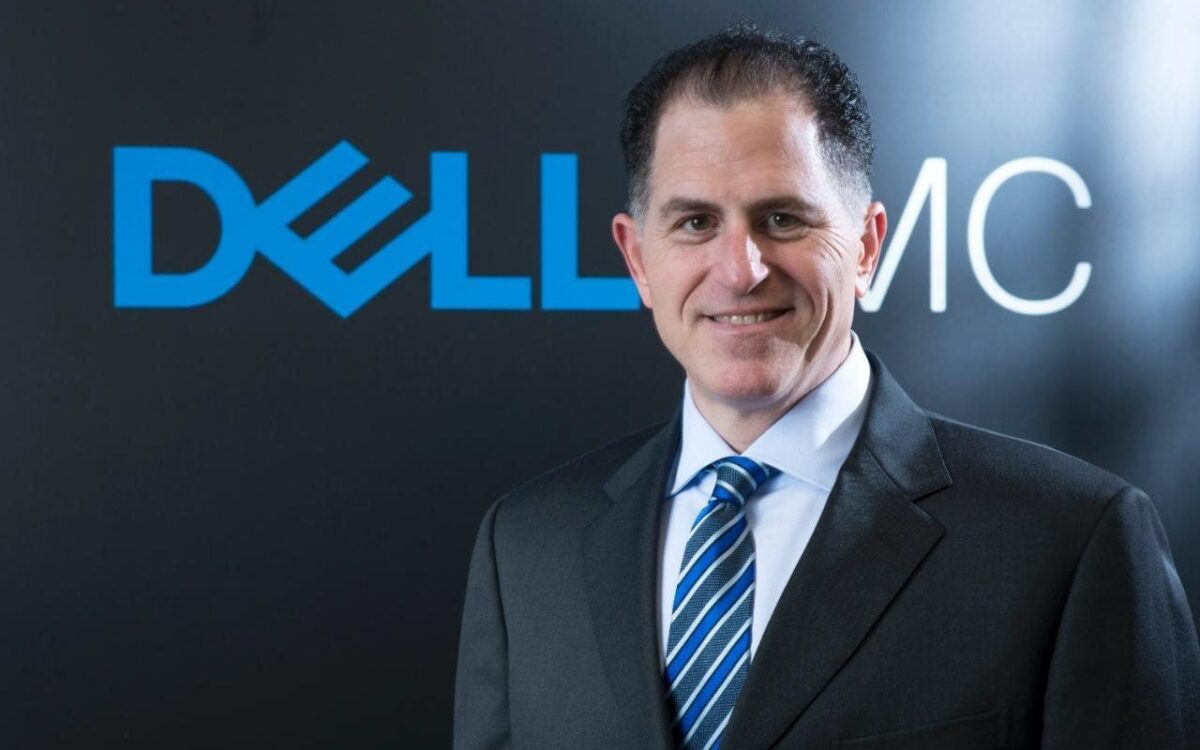If you’re curious about who owns Dell, you’ve come to the right place.
Dell is a technology company that develops, sells, repairs, and supports computers and related products and services.
Dell Technologies is the parent company that owns Dell, making it one of the world’s leading sellers of personal computers.
Michael Dell, the founder and original CEO of Dell, is also a major shareholder in the company.
Dell Technologies is a multinational corporation that owns several companies, including Dell, VMware, RSA Security, Pivotal Software, SecureWorks, and Virtustream.
As of 2023, Dell Technologies is a publicly traded company, with the ticker symbol DELL.
The company’s headquarters are located in Round Rock, Texas.
If you’re interested in investing in Dell, you can purchase shares of DELL on the stock market.
Post Contents
Who is Michael Dell?

Michael Saul Dell is an American billionaire business magnate and philanthropist.
He was born on February 23, 1965, in Houston, Texas, and is the founder, chairman, and CEO of Dell Technologies, one of the world’s largest technology infrastructure companies.
Dell attended the University of Texas at Austin but dropped out at the age of 19 to start his own computer business from his dorm room.
His business quickly grew, and by the age of 27, he became the youngest CEO of a company listed on the Fortune 500.
Aside from his work with Dell Technologies, Dell is also known for his philanthropic efforts.
In 1999, he and his wife established the Michael and Susan Dell Foundation, which aims to improve the lives of children living in poverty through education, health, and family economic stability.
Dell is also a major contributor to his alma mater, the University of Texas at Austin, where he has donated millions of dollars to support various initiatives, including the Dell Medical School and the Dell Computer Science Hall.
In recognition of his contributions, the university has named the Dell Computer Science Hall after him.
History of Dell Technologies
Dell Technologies is an American multinational technology company that develops, sells, repairs, and supports computers and related products and services.
The company was founded by Michael Dell in 1984, while he was a freshman at the University of Texas at Austin.
The company was initially called “PC’s Limited” and sold IBM-compatible computers built from stock components.
In 1985, the company released its first computer, the Turbo PC, which was a success.
The company changed its name to Dell Computer Corporation in 1988 and went public in 1989.
Dell’s direct-to-consumer sales model, which allowed customers to customize their computers and purchase them directly from Dell, was revolutionary at the time.
It allowed Dell to offer lower prices and faster delivery times than its competitors.
In 2003, the company changed its name to Dell Inc. and expanded its product offerings to include printers, televisions, and other consumer electronics.
However, the company struggled to keep up with changing market trends and competition from other tech giants like Apple and HP.
In 2016, Dell Inc. merged with EMC Corporation in a $67 billion transaction, creating Dell Technologies.
The new company is a conglomerate of several technology companies, including Dell, EMC, VMware, Pivotal, SecureWorks, and RSA.
Dell Technologies is headquartered in Round Rock, Texas, where Dell Inc. was also headquartered.
Today, Dell Technologies is a leading provider of hardware, software, and services for data storage, cloud computing, cybersecurity, and more.
The company continues to innovate and adapt to changing market conditions, while staying true to its roots as a customer-focused technology company.
Who Owns Dell?
If you’re wondering who owns Dell, the answer is Dell Technologies.
Dell is a privately-owned company, and its parent organization is Dell Technologies.
The company was founded by Michael Dell, who is also the original CEO of Dell.
Michael Dell is a well-known American entrepreneur and businessman.
Dell Technologies is not publicly traded, meaning that it is not listed on any public markets.
Instead, it is a privately held company, and its ownership is not available to the general public.
The company’s net worth is estimated to be around $70 billion.
In 2016, Dell Technologies acquired EMC Corporation for $67 billion, which was the largest tech acquisition in history at the time.
This acquisition was supported by major Dell shareholders, including Singapore’s Temasek Holdings and Silver Lake Partners.
Silver Lake is a private equity firm that has been involved with Dell for many years.
In 2013, Silver Lake helped Michael Dell take the company private in a deal worth $24.4 billion. Since then, Silver Lake has remained a major shareholder in Dell Technologies.
Dell Technologies’ ownership structure is unique in that it is not publicly traded, and its ownership is not available to the general public.
Instead, the company is owned by a group of private investors, including Michael Dell and Silver Lake.
This private ownership structure allows Dell Technologies to focus on long-term growth and innovation, rather than short-term gains to please shareholders.
Products and Services

Dell offers a wide range of products and services to meet your computing needs.
Whether you’re looking for a personal computer, notebook computer, or server, Dell has got you covered.
In addition to hardware, Dell also offers a variety of software solutions, including operating systems, productivity software, and security software.
Dell also offers a range of electronics, including cameras and televisions.
Their Inspiron line of laptops is a popular choice for consumers, offering a balance of performance and affordability.
When you purchase a Dell product, you’ll be given a service tag that allows you to easily identify your device and access support options.
If you ever need repairs or shipping services, Dell has a team of experts ready to assist you.
Major Partnerships and Deals
Dell has established several major partnerships and deals over the years, which have helped the company to grow and expand its offerings.
Here are some of the most notable ones:
- EMC Corporation: In 2016, Dell acquired EMC Corporation for $67 billion, making it the largest tech deal in history. This acquisition helped Dell to expand its portfolio of enterprise solutions, including storage, cloud computing, and data management.
- Silver Lake Partners: In 2013, Dell went private with the help of private equity firm Silver Lake Partners, which invested $1.4 billion in the company. This move allowed Dell to focus on long-term growth strategies without the pressure of quarterly earnings reports.
- Microsoft: In 2018, Dell and Microsoft announced a partnership to deliver a joint cloud solution that combines Microsoft Azure and Dell EMC infrastructure. This partnership allows customers to run their applications on a consistent hybrid cloud platform, which can be managed from a single console.
- Technology deal: In 2021, Dell announced a technology deal with VMware, which allows Dell to offer its customers a fully integrated and seamless hybrid cloud experience. This partnership also allows Dell to leverage VMware’s expertise in software-defined networking and security.
- VMware: Dell has a majority stake in VMware, which is a leading provider of virtualization software and cloud infrastructure solutions. In 2021, Dell announced that it would spin off its 81% equity ownership of VMware, which would allow Dell to reduce its debt and focus on other growth opportunities.
Market Presence and Competitors
Dell is a multinational technology company that operates in various sectors of the market.
Dell’s primary focus is on providing hardware, software, and services to businesses and consumers.
Dell is a major player in the personal computer industry and competes with various other companies.
In the personal computer sector, Dell’s main competitors are Lenovo, HP Inc., Apple, Asus Inc., and Acer Inc.
According to a report by Statista, Lenovo holds the top market share in the consumer PC sector for Q1 2022, followed by HP Inc.
Dell is ranked third in the same report.
However, in the global personal computer market, Lenovo is the overall market leader with a market share of 24.1 percent, followed by HP with a 19.4 percent share.
Apart from personal computers, Dell also competes with other companies in various other sectors.
In the networking sector, Dell competes with companies like Arista Networks (ANET) and Box.
In the server market, Dell competes with companies like IBM, Hewlett-Packard Enterprise (HPQ), and Oracle.
Dell has a strong presence in the market due to its diverse product portfolio and customer-centric approach.
Dell’s focus on providing customized solutions to its customers has helped the company maintain a loyal customer base.
Dell also offers various services like consulting, deployment, and support, which has helped the company differentiate itself from its competitors.
In conclusion, Dell is a major player in the technology industry, with a strong market presence in various sectors.
Dell competes with various other companies in the personal computer industry, networking sector, and server market.
However, Dell’s diverse product portfolio and customer-centric approach have helped the company maintain a strong position in the market.
Financial Performance
When it comes to financial performance, Dell Technologies has been consistently delivering strong results.
According to their most recent quarterly report, the company generated $26.1 billion in revenue, representing a 12% increase year over year.
This solid performance was driven by growth across all business units, with record PC shipments and robust demand for infrastructure solutions.
In terms of market value, Dell Technologies is currently valued at around $95 billion.
This makes it one of the largest technology companies in the world, with a strong presence in both the consumer and enterprise markets.
If you’re considering buying or selling Dell stock, it’s important to keep an eye on the company’s financial results and overall performance.
In terms of recognition, Dell Technologies has been featured on both Fortune 500 and Forbes’ lists of the largest and most successful companies in the world.
It’s also worth noting that the company has consistently reported strong annual revenue, with over $101 billion generated in fiscal year 2022.
Corporate Responsibility and Ethics
When it comes to corporate responsibility and ethics, Dell takes it very seriously.
As a company, Dell is committed to upholding the highest standards of integrity and ethics in all its business operations.
This commitment is reflected in the company’s corporate governance principles, which are designed to promote business success while enhancing long-term stockholder value.
Dell’s commitment to ethics and integrity is evident in the company’s leadership team.
Mike McLaughlin, Dell’s Chief Ethics and Compliance Officer, leads the company’s global functions in ethics, compliance, privacy, employment law, and employment litigation.
Additionally, Rich Rothberg, the General Counsel for Dell, oversees the global legal department and manages government affairs, compliance, and ethics.
Both leaders have played critical roles in promoting and upholding Dell’s commitment to corporate responsibility and ethics.
Dell recognizes that security, privacy, and ethics are core to establishing and maintaining trusted relationships with its customers.
For this reason, the company has spent decades listening to its customers and understanding their needs.
Dell understands the criticality of data and product security, data privacy, and ethical behavior to its long-term business success.
As a result, the company has implemented policies and procedures to ensure that its products and services meet the highest standards of security, privacy, and ethics.
Dell has two governance bodies responsible for overseeing ESG (Environmental, Social, and Governance) issues within the company: the ESG Steering Committee and ESG Interlock Team.
These governance bodies mirror and align with how the company manages risk, ensuring that ESG issues are given the same level of attention as other risks.
Dell’s Future Vision
Dell Technologies has always been at the forefront of innovation, and its future vision is no different.
With a focus on mobile, enterprise, and the digital future, Dell is poised to continue transforming people’s lives with extraordinary capabilities.
As technology continues to evolve, Dell is committed to staying ahead of the curve.
The company’s vision includes a strong emphasis on smartphones and mobile technology, recognizing the importance of these devices in today’s world.
Dell is constantly exploring new ways to integrate mobile technology into its products and services, making it easier for customers to stay connected and productive on the go.
In the enterprise space, Dell is focused on delivering solutions that help businesses operate more efficiently and effectively.
This includes a strong emphasis on manufacturing and education, two areas where Dell has a long history of expertise.
By leveraging its leadership in these areas, Dell is able to deliver cutting-edge solutions that meet the unique needs of businesses and educational institutions.
Looking to the future, Dell is also investing heavily in the digital future.
With a focus on smart technologies and the Internet of Things (IoT), Dell is working to create a world where everything is connected and intelligent.
This includes developing new technologies and solutions that can help customers harness the power of data and analytics to drive business success.
At the heart of Dell’s future vision is a commitment to its customers.
By listening to customers and understanding their needs, Dell is able to deliver solutions that truly make a difference in their lives.
Whether it’s through mobile technology, enterprise solutions, or the digital future, Dell is dedicated to helping customers achieve their goals and realize their full potential.
Key Takeaways
If you’re wondering who owns Dell, the answer is a bit complicated.
Dell Technologies is a publicly traded company, which means that ownership is spread across a large number of shareholders.
However, there are a few key players who hold a significant amount of Dell’s stock.
One of the largest shareholders is Michael Dell himself, who founded the company in 1984.
As of 2023, he owns around 47% of Dell’s common stock.
Another major shareholder is Silver Lake Partners, a private equity firm that helped take Dell private in 2013.
They currently own around 17% of the company.
In addition to these two major players, there are a number of other institutional investors who own significant stakes in Dell.
These include Vanguard Group, BlackRock, and State Street Corporation.
It’s worth noting that Dell also has a number of subsidiaries and joint ventures that are partially or wholly owned by other companies.
For example, Dell owns a majority stake in VMware, a software company that specializes in virtualization and cloud computing.
This ownership structure can make it difficult to determine exactly who owns Dell as a whole.






























